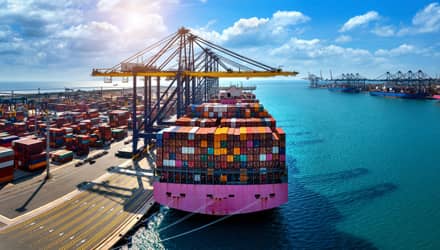Introduction
International shipping can be a complex landscape filled with regulations, documentation requirements, and logistical challenges. As businesses expand their reach globally, understanding how to navigate these waters becomes essential. This guide provides essential insights into obtaining effective shipping guidance, ensuring compliance, and optimizing your international shipping operations.
Understanding International Shipping Guidance
International shipping guidance refers to the frameworks, regulations, and best practices that govern the transportation of goods across borders. It encompasses everything from understanding customs documentation to adhering to environmental regulations. Proper guidance is crucial for ensuring that shipments are delivered efficiently and without delay.
Key Components of International Shipping Guidance
When seeking effective international shipping guidance, consider the following critical components:
- Customs Documentation: Proper customs documentation is fundamental for successful international shipping. This includes invoices, packing lists, and certificates of origin. Ensuring accuracy in these documents can prevent delays at customs.
- Harmonized System (HS) Codes: These standardized classification codes are essential for determining import duties and taxes. Correctly assigning HS codes to your goods is vital for smooth customs clearance.
- Import and Export Regulations: Each country has specific regulations governing what can be imported or exported. Familiarize yourself with these rules to avoid potential legal issues or shipment rejections.
- Sanitary and Phytosanitary (SPS) Measures: These regulations protect human, animal, and plant health. Compliance with SPS measures is crucial for food products and agricultural shipments.
- Environmental Regulations: International shipping is subject to various environmental laws aimed at minimizing pollution. Understanding these regulations is essential for compliance and sustainability.
- Security Measures: Post-9/11 security protocols have heightened scrutiny in international shipping. Implementing secure supply chain practices is necessary to adhere to these regulations.
Best Practices for Obtaining Shipping Guidance
To effectively navigate international shipping, consider implementing these best practices:
- Engage with Experts: Collaborate with customs brokers or logistics experts who specialize in international shipping. Their expertise can help you navigate complex regulations and avoid common pitfalls.
- Stay Informed: Regularly update yourself on changes in international shipping regulations. Subscribe to industry newsletters or follow relevant organizations to remain informed about best practices and compliance requirements.
- Utilize Technology: Leverage technology solutions that provide real-time tracking and automated customs documentation. This can streamline your shipping processes and enhance visibility throughout the supply chain.
- Develop Strong Relationships with Carriers: Building relationships with reliable carriers can facilitate smoother logistics operations. Ensure that your chosen carriers understand your specific needs and compliance requirements.
- Regularly Review Your Processes: Continuously evaluate your shipping processes to identify areas for improvement. This includes assessing documentation accuracy, compliance with regulations, and overall efficiency.
Conclusion
Navigating the complexities of international shipping requires a comprehensive understanding of various regulations, documentation requirements, and logistical challenges. By focusing on key components of shipping guidance and implementing best practices, businesses can optimize their international shipping operations while ensuring compliance with evolving regulations. Staying informed and proactive will not only enhance efficiency but also contribute to long-term success in global trade.
FAQs
1. What are the essential documents required for international shipping?
Essential documents include invoices, packing lists, certificates of origin, and any necessary permits or licenses specific to the shipment’s nature.
2. How can I ensure compliance with international shipping regulations?
Engage with customs brokers or logistics experts, stay updated on regulatory changes, utilize technology for tracking and documentation, and develop strong relationships with carriers.
3. What role do HS codes play in international shipping?
HS codes are standardized classification codes used globally to determine applicable import duties and taxes for goods being shipped internationally; accurate classification is crucial for customs clearance



